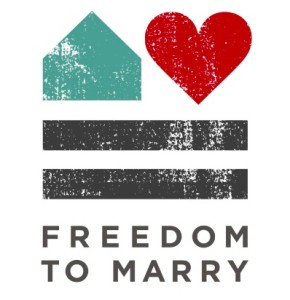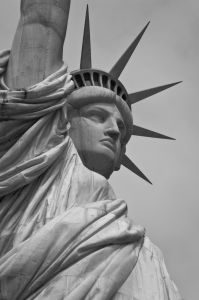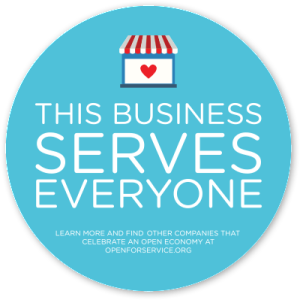Posted on: November 5th, 2011 by Amy Lynn Smith
Tolerance. Justice. Diversity. Equality. These are principles I’ve been thinking about a lot lately.
And they’ve become indelibly stuck in my head, it seems, by the musical Parade. The show tells a tale of intolerance and injustice in the Deep South of the early 20th century, a story that’s still being played out around the country.
 I saw Parade more than a month ago, at Ford’s Theatre in Washington, D.C. The production was superb, and the show (book by Alfred Uhry; music and lyrics by Jason Robert Brown) is powerful both in music and message. Parade is based on the true story of Leo Frank, a Northern Jew living in Atlanta, who in 1913 was unjustly accused of murdering a young girl. You can read more about Frank and Parade, but if you have the chance to see the play I urge you to do so with no prior knowledge, as I did. I was deeply moved and stunned by the story.
I saw Parade more than a month ago, at Ford’s Theatre in Washington, D.C. The production was superb, and the show (book by Alfred Uhry; music and lyrics by Jason Robert Brown) is powerful both in music and message. Parade is based on the true story of Leo Frank, a Northern Jew living in Atlanta, who in 1913 was unjustly accused of murdering a young girl. You can read more about Frank and Parade, but if you have the chance to see the play I urge you to do so with no prior knowledge, as I did. I was deeply moved and stunned by the story.
I will share that Parade explores issues of the intense pride of the Deep South, particularly after the Civil War, and how that loyalty sometimes becomes bigotry. It looks at the ways justice can be derailed for political gain or hatred of someone who doesn’t fit in, whether that person is African American, Jewish or simply different. It also eloquently expresses that everyone has a point of view, and rarely is that view either all good or all bad. And that despite the inclination of some to go along with a group mentality, there will always be those who follow their own conscience. That there are people who will do the right thing, no matter what it costs them.
The performance was followed by a talk with members of the production team and the audience. Parade was part of an ongoing endeavor at Ford’s Theatre called the Lincoln Legacy Project, “a five-year effort to create a dialogue in our nation’s capital around the issues of tolerance, equality and acceptance.”
Audience members shared their thoughts on how the story paralleled current events like the Troy Davis execution, which had happened that week. Others mentioned Alabama and its immigration laws, or attendees at a GOP debate booing a soldier for being gay. Still others talked about how the media can shape the public’s thought powerfully enough to influence a legal verdict.
One woman was extremely angry. She demanded to know why Ford’s Theatre had put on a play that, as she put it, made her “hate the South.” She couldn’t understand why a theatre would present a play that portrayed the South as so evil, that would add fuel to the fires of hatred already so prevalent.
The director of the theatre came out to answer the woman’s questions. He explained that everything in the play is true, and that the production team felt the play had an important message to convey. Although bigotry may be directed at different groups today than it was 100 years ago, it still exists.
I could see exactly where he was coming from, because the play raises timeless issues of intolerance and injustice. What’s more, I disagreed with the woman’s viewpoint. Partly because some of the negatives Parade portrays about the Deep South were, and are, sometimes true. But even more important, the play’s characters include Southerners who accepted diversity and who did the right thing, in one case risking a potentially important career. The play shows that no matter what side people were on — that of a beloved young girl who was mysteriously murdered or the man who swore he’d never touched her — everyone suffered a loss. Everyone was seeking justice. My heart ached for everyone.
All of this has stuck with me for a month, as I’ve listened to the music and continued following the news about events in the Deep South. Alabama, in particular, troubles me. I realize our country has an immigration problem, but I’m certainly not alone in questioning the severity of the law they’ve passed there. A recent article even compared the immigration fight in Alabama to the civil rights era. Meanwhile, some Alabama state legislators have used racial epithets while others have faced charges in a gambling corruption trial.
All this and more paints an ugly picture. It makes me angry. It makes me wonder how any state could have so much disrespect for its citizens. I realize I don’t know every detail, but it still upsets me. It also worries people I’ve spoken to who live there or were raised there. One man in particular dislikes going back because of what the state has become, but still urged me to read a book that celebrates the good things about Alabama (Alabama Afternoons by Roy Hoffman). It’s on my to-read list. I appreciate his balanced view.
Because while I reflect on the questions that continue to roll around my head, many still unanswered, I can’t stop thinking of the two ladies from Alabama I sat next to at the “Capitol Steps” during that same trip to D.C. Incredibly nice people, who laughed as much at the satirical group’s pot-shots at one political party as they did at those taken against the other. I did the same. And to me, bipartisan humor indicates a bipartisan perspective.
Those ladies were a lovely reminder that not everyone in Alabama, or anywhere else for that matter, thinks the same way. Which brings me back to one of my fundamental beliefs: No group is all good or all bad. No person, with rare exceptions, is all good or all bad. Does some of what’s happening in Alabama and other states — Southern and otherwise — make me worry for the future of tolerance and justice in this country? Absolutely.
But even more important, I believe that in the midst of hatred and bigotry and lies, there are people fighting for positive change. Just as there were in Parade and the tragic true story of Leo Frank, there are people everywhere trying to do the right thing.
I believe in the good in people, and I believe that the good in people will ultimately prevail. Even if every story doesn’t have a happy ending.
 I recently had the pleasure of interviewing Marc Solomon, national campaign director of Freedom to Marry, about the work he and many others have been doing to win the right for same-sex couples to marry nationwide.
I recently had the pleasure of interviewing Marc Solomon, national campaign director of Freedom to Marry, about the work he and many others have been doing to win the right for same-sex couples to marry nationwide.







